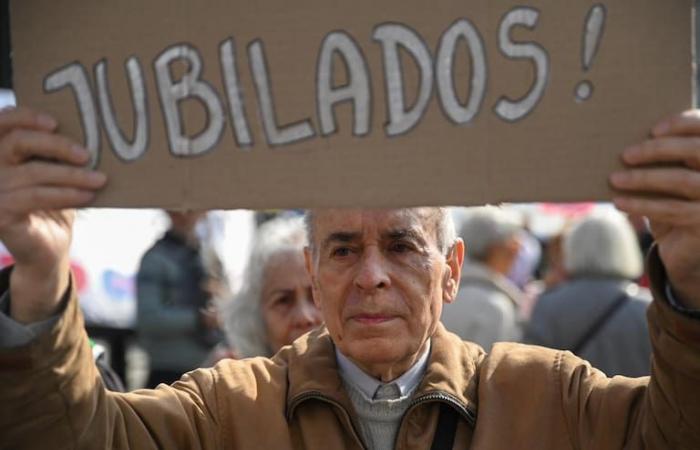Hear
Since God expelled Adam and Eve from Paradise, unless they suffer fatal accidents while they are young, in their last years of life human beings greatly reduce the probability of supporting themselves, generating income to cover their expenses. How did a farmer get by in the Middle Ages before Otto Bismarck created state retirement in Germany around 1860? Today the challenge faced by many retirees and pensioners is different, but no less distressing.
About this I spoke with the American Edward Martin Gramlich (1939-2007), who studied at Yale and taught at Michigan. “The years of John Fitzgerald Kennedy’s presidency were inspiring for young, socially conscious economists. At Yale I was inspired by Arthur Melvin Okun and James Tobin,” he declared in 2004. In his country’s public sector he worked in the Federal Reserve System, in the Office of Economic Opportunities (OEO) and in the budget office. On an academic level, he dealt with the economics of baseball and collaborated on the Economic Studies Commission of the major leagues.
–What do you remember from your time in public service?
–In the OEO the studies showed that the impact of the reduction in labor supply of the individual subsidy schemes was very small, but the political impact was very strong! In public policies we went from the exaggerated optimism of the 1960s to the exaggerated skepticism of the 1990s.
–I consult you because of issues related to social security, about which in 1998 you published a book entitled Is it time to reform social security?
–Let’s start by reflecting on the typical farmer of the Middle Ages. As you say, unless he died young, for example, due to an accident, he had to solve the problem of how to feed himself when his physical strength weakened due to the passage of time.
–What was he doing?
–He had a large family or, as economists say, “he invested in children.” Consider that he had 10 children, four of whom were likely to die early, and he lived in the hope that two of the six would take care of him and his wife. I do not rule out that he also accumulated some assets, but preserving food was not easy, there were no banks, and on the other hand the income must have been very little above subsistence.
–Enormous weight on the children.
–Yes, although not for long. Because remember that at the beginning of the 19th century, even in the most economically advanced countries, life expectancy was just over 30 years.
–And then Bismarck appeared?
–There is an intermediate step, that of mutual societies. Voluntary associations, faced between members of the private sector, where everyone contributes to a common fund and members withdraw based on specific needs. For example, believe it or not, funeral expenses. In a fundamental sense, the International Monetary Fund (IMF) functions as a gigantic mutual fund, where the members are not natural persons, but countries.
–We arrived in Bismarck.
–Indeed, where the State takes charge of social security. Don’t ask me for details, because I don’t have them at hand, but the principle has to be the same as any retirement system: the assets are contributed by those who are working, and the liabilities are withdrawn by those who stopped working.
–Excuse me, because the Germans are very organized, but don’t tell me that the system covered all employees.
-Good point. He operated in what we today call the formal sector of the economy, and it probably was not uniformly so. Think about Argentina: public employees had a retirement regime since the beginning of the 20th century; Railway, banking, public service employees, etc. also achieved it early. Juan Domingo Perón did not create the retirement system, but rather generalized it through the creation of pension funds for employees in industry and commerce.
–Perón had a pension surplus.
–Exactly, because when a system becomes widespread, all those incorporated contribute, but they retire little by little. Social security in your country has been in deficit since the beginning of the 1960s, and the difference between income and expenses is covered with taxes, public debt or inflation.
–The problem became greater as time went by.
–Due to a multiplicity of factors, which all pulled in the same direction. The informal economy and self-employment conspired on the income side, while the increase in life expectancy did so on the expenditure side. It is true that the retirement age was increasing over time, but more slowly than the increase in the population’s life expectancy. In 2023, the income from the social security system only covered 60% of the expenditures in that area.
–Retirees and pensioners are today one of the main issues in Argentina.
–In this regard, there is nothing better than imitating Alfred Marshall and putting a cool head at the service of a warm heart.
–I hear it.
–The retiree “club” is made up of around 10 million people, 6 million of whom contributed something and 4 million of whom contributed nothing. And as if this were not enough, due to the way in which the benefits were awarded to the 4 million, many beneficiaries were not even in a compromised economic situation. Why aren’t those who contributed pensions adjusted for inflation and the rest for a fraction of inflation?
-Anything else?
–Days ago Guillermo Francos, Chief of Staff, stated that the number of retirees due to disability or disability had gone from around 70,000 in 2003 to much more than one million today. How can that be in a country that did not suffer wars, earthquakes, etc.? Let’s be specific: the declaration of disability or incapacity is made by a doctor, so, pardon Paracelsus, how to say it? Some doctors are in trouble.
–Why is this clarification important?
–Because there is a lot of talk about modifying the legislation, so that employment increases and the social security system is viable, but if the problem is of doctors who classify as invalid or disabled people who are not, this cannot be corrected with changes. In the law. Therefore, I want to make a proposal that seems to me to be of strict justice.
-Tell me.
–That the national State commits not to reduce total spending on social security, but that it review the benefits granted to those who did not contribute anything, and that it reclassify those retired due to disability and disability, who made fun of the rest of the compatriots, with the complicity of some doctors.
–Don Edward, thank you very much.






